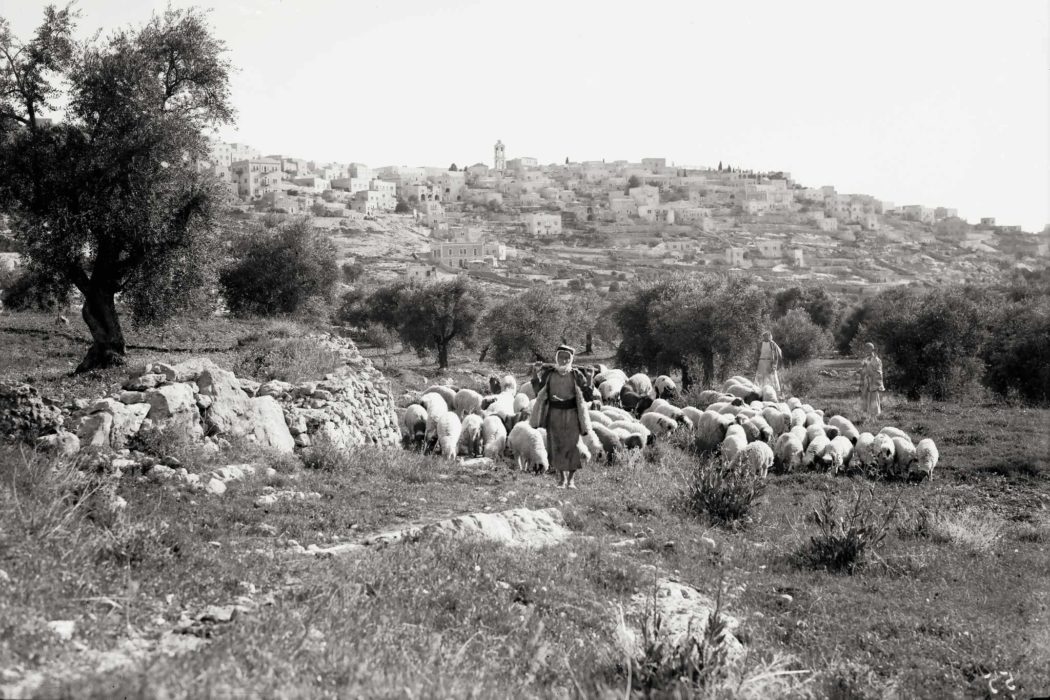YOU MIGHT HAVE EXPECTED ‘Abdu’l-Bahá to speak to the International Peace Forum on the scourge of war, or perhaps the need for international arbitration. Yet, just as he had done at the Lake Mohonk Conference on International Arbitration, and at various speeches to peace societies in New York, he tackled the subject in an unexpected way. He spoke instead about religion, and about the prophets of God throughout the ages.
The peace movement in the early twentieth century was deeply intertwined with religion. Peace organizations met in churches and synagogues. Their membership pursued the cause of peace with religious conviction. But ‘Abdu’l-Bahá wasn’t simply taking advantage of a captive audience in order to present a religious message; his approach ran much deeper. He argued that the binding power of religion must lie at the core of humankind’s hopes for peace.
“There is a brotherhood greater and superior to all other brotherhoods,” he said, “and that is the spiritual brotherhood, the heavenly brotherhood. This brotherhood is established by the Manifestations of the Holy One.”
At various times during his trip to America, ‘Abdu’l-Bahá had enumerated a list of these “Manifestations” including Abraham, Zoroaster, Buddha, Moses, Jesus, Muhammad and Bahá’u’lláh. At the Metropolitan Temple, he noted that “every one of the Holy, Sacred Manifestations who have appeared have founded this spiritual brotherhood. They have striven to unite humanity to such a degree that all may be accounted as one soul.”
Borrowing a Christian metaphor, ‘Abdu’l-Bahá defined their function: “Consider that the purpose or function of the shepherd is to gather together the sheep. . . . The purport is this: that the Prophets of God, the Manifestations, have all been Shepherds and they have gathered together the divine sheep. They have established a bond for the unity of humanity.”
At his talk to the International Peace Forum at Grace Methodist Episcopal Church on May 12, 1912, ‘Abdu’l-Bahá had used the same metaphor, explaining that “Every divine Shepherd has assembled a flock which had formerly been scattered.” In that talk, he expounded a series of historical examples, beginning with Moses.

“At a time when the tribes of Israel were wandering and dispersed, He assembled, united and educated them to higher degrees of capacity and progress until they passed out of the wilderness of discipline into the holy land of possession. . . . It is evident, therefore, that Moses was a divine Shepherd, for He gathered the tribes of Israel together and united them in the power and strength of a great nationhood.”
‘Abdu’l-Bahá described how the pattern continued with Jesus, Muhammad, and Bahá’u’lláh. In each case, the historical record demonstrated the binding power of religion.
Yet, ‘Abdu’l-Bahá pointed out, this bond weakens over time. “Imitations and superstitions” creep into religion, and there is a continuous need for renewal. At a gathering at the home of Edward Kinney a day later, ‘Abdu’l-Bahá defined another role of the prophets of God:
“The divine Manifestations have been iconoclastic in Their teachings, uprooting error, destroying false religious beliefs and summoning mankind anew to the fundamental oneness of God.” Then ‘Abdu’l-Bahá returned, again, to the binding power of the Manifestations of God, and their role in establishing peace.
When ‘Abdu’l-Bahá’s finished speaking, Rabbi Joseph Silverman took the podium. He led America’s largest Reform Judaism congregation at New York’s Temple Emanu-El. He responded to ‘Abdu’l-Bahá’s argument, commenting on “the religion of Peace” by stating “there is absolutely no other religion.” The various forms of religion that have appeared through the ages, he said, were as shells “carrying the kernel from place to place.” “Don’t mistake, as so many do, the kernel for the shell.” He also noted that ‘Abdu’l-Bahá had made the same point using a similar metaphor: “don’t mistake the lantern for the light.”
“It is the light we need,” Rabbi Silverman said. “Seek the kernel; it will bring illumination to the mind; it will bring purity to the heart; it will bring brotherhood to all mankind.”






